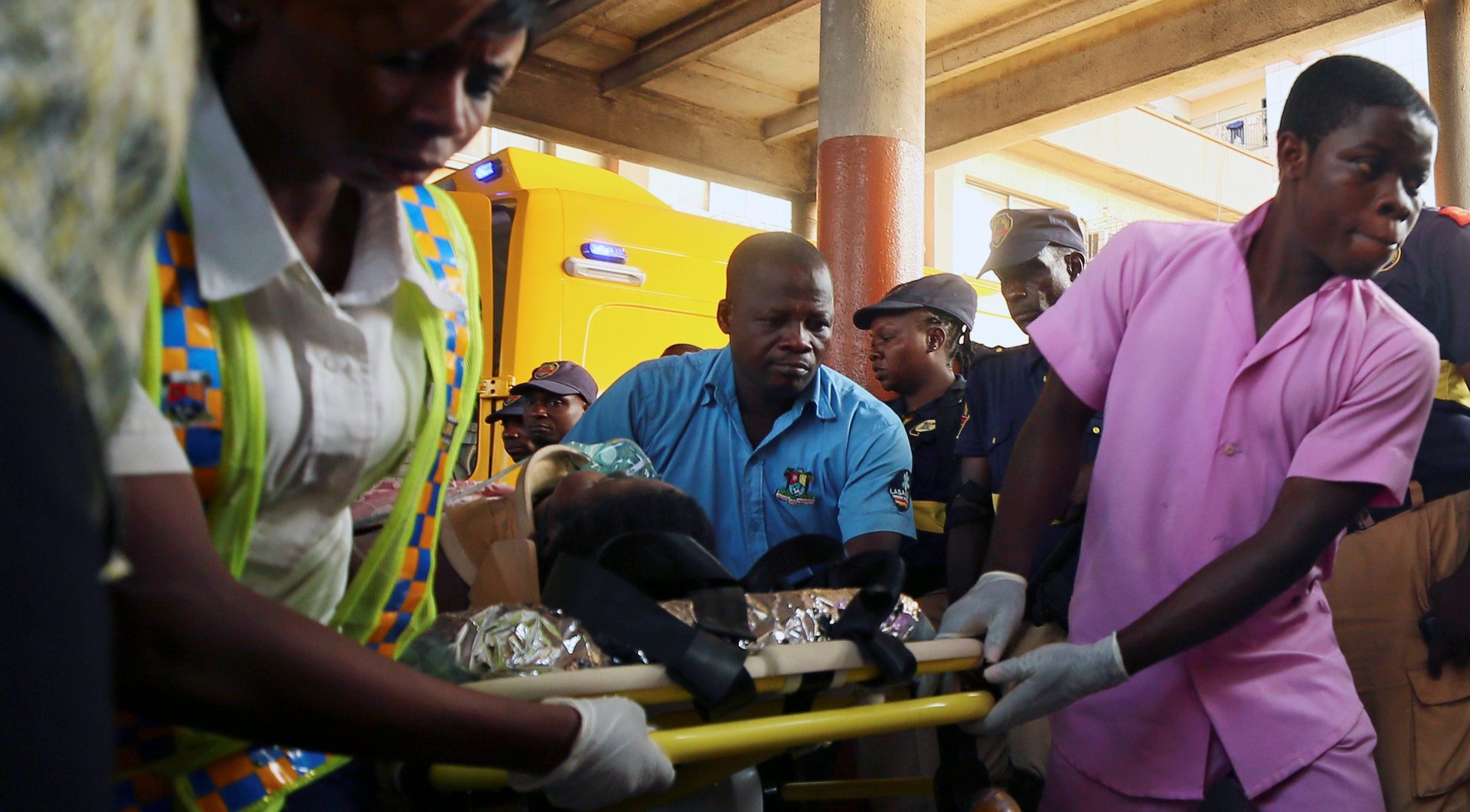Coronavirus is forcing Nigeria’s leaders to confront the broken health system they rarely use
Three state governors and the president’s chief of staff are among the top government officials that have tested positive for Covid-19 in Nigeria.


Three state governors and the president’s chief of staff are among the top government officials that have tested positive for Covid-19 in Nigeria.
But amid stiff restrictions on international travel, these government officials are now faced with an unusual reality: receiving medical care in Nigeria. It’s a departure from a long-running trend which sees Nigeria’s history replete with instances of high-level government officials shunning local hospitals and seeking treatment abroad.
In 2015, Godswill Akpabio, former governor of oil-rich Akwa Ibom, sought treatment in London following a car crash only four months after he commissioned a 30 billion naira hospital ($76 million) in the state capital. More recently in 2017, Nigeria’s president Muhammadu Buhari spent 154 days in London treating an undisclosed ailment despite a public stance against government officials seeking treatment abroad. Musa Yar’adua, one of Buhari’s predecessors, passed away in office in 2010, after months of receiving medical care in Saudi Arabia.
Nigeria is not alone in this regard when it comes to African leaders. Former and current presidents of countries including Angola, Cameroon, Gabon, Zimbabwe and several others have all sought medical care abroad. Indeed as Quartz Africa has noted between 2008 to 2014 six of the 12 African leaders who died in office were on medical trips abroad.
Without the option of traveling abroad this time, affected Nigerian government officials will reckon more closely with an underfunded and under-equipped healthcare system that regular Nigerians have become all too familiar with.
Despite annual budgets running into hundreds of millions of dollars for public health, stories of oxygen shortages in public hospitals and surgeries being conducted without electricity remain commonplace in Nigeria. Similarly, strike actions by public healthcare workers protesting low and unpaid salaries by the government are a frequent occurrence.
And, with Nigerian doctors and nurses increasingly emigrating to UK, Europe and North America in search of better job prospects and working conditions, the local shortage of health workers is worsening. The country has around one doctor per 5,000 people, well below the WHO’s recommended 1 doctor per 600 people.
As Nigeria’s coronavirus cases start to spike despite the country’s conspicuously low testing numbers, there is increased fear local hospitals will be overwhelmed in the event of a widespread outbreak. While tech startups and private businesses are attempting to shore up infrastructure deficits, their efforts also highlight the scale of the lack of resources: a national register for medical equipment for coronavirus treatment has found fewer than 100 ventilator units across a country with nearly 200 million people.
After years undermining public faith in local hospitals and using taxpayers funds for trips abroad for medical care, government officials will now be faced, up close, with stark reminders of the shortcomings of the public health system that continues to exist under their watch.
But regardless, a long history of failed promises also doesn’t inspire hope things could change after the outbreak. “The situation has shed light on how deficient our healthcare system is…but once this issue is done, we will return to status quo,” says a doctor employed by the government who asked not to be named.
As it turns out, even without the option of traveling abroad, some officials do not appear willing to entrust their health to government-owned hospitals while expecting millions of Nigerians to do: rather than submit to one of the government’s isolation and care centers for coronavirus, Abba Kyari, Buhari’s powerful chief of staff, has already made personal arrangements for his treatment.
Sign up to the Quartz Africa Weekly Brief here for news and analysis on African business, tech and innovation in your inbox